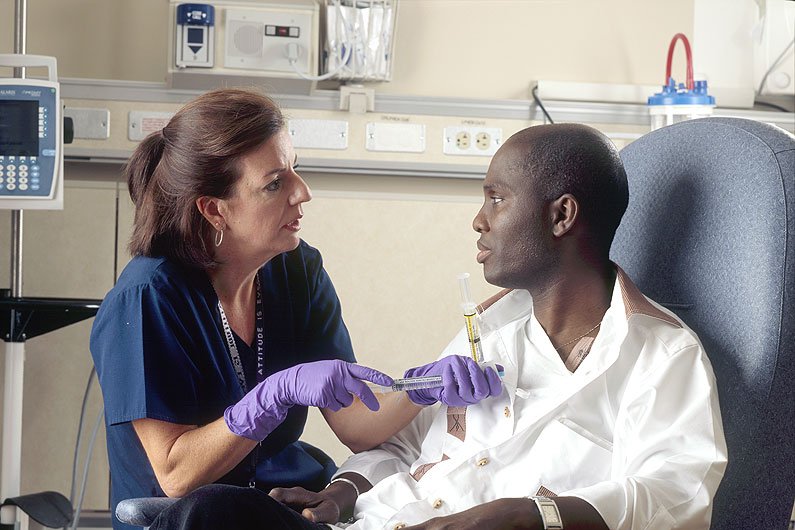Researchers have devised a new gene mapping technique helps medical providers determine the best chemotherapy option for patients on an individual basis. Photo by Rhoda Baer/Wikimedia Commons
April 18 (UPI) -- Researchers have devised a new gene mapping technique that allows medical providers to determine the chemotherapy with the fewest side effects and best success for individual patients.
With more than 100 chemotherapy agents in wide use, researchers at the University of California San Francisco examined the use of computational biology to assist personnel in choosing the best regimen. Their findings were published Wednesday in Cell Reports.
While 95 percent of cancer patients receive chemotherapy as part of their treatment, oncologists now have little information to guide their decisions about which of these drugs to use in a given patient, said Dr. Sourav Bandyopadhyay, senior author on the study.
"We know very little about how gene mutations in tumor cells can change how a tumor might respond or not to certain chemotherapy drugs," Bandyopadhyay, a professor of bioengineering and therapeutic sciences in UCSF's Schools of Pharmacy and Medicine, said in a press release. "Mapping these sorts of connections could make it possible to optimize which drugs patients get based on their tumor genetics."
Chemotherapies' potent toxins, after delivery into the bloodstream, kill tumor cells throughout the body by damaging DNA in rapidly dividing cells. But during this process, they can also harm other dividing cells, including those in the stomach lining, in hair and nail follicles, blood and immune stem cells in the bone marrow. Also, tumors often develop resistance to drugs that initially seem effective.
There are also numerous side effects, including fatigue, hair loss, diarrhea, weight change, mood changes, nausea and vomiting, according to the American Cancer Society.
For the study, researchers mapped connections between 625 breast and ovarian cancer genes and most chemotherapy regimens approved by the Food and Drug Administration for breast or ovarian cancer. They then performed 80,000 experiments in lab dishes to find the efficacy of chemotherapies against tumor cells and the specific genetic mutations they carry.
"We're trying to take a systems view of chemotherapy resistance," Bandyopadhyay said. "With rarer mutations in particular there aren't enough patients for large clinical trials to be able to identify biomarkers of resistance, but by considering all the different potential genetic factors that have been identified together in one study, we can robustly predict from experiments in laboratory dishes how cancers with different genetic mutations will respond to different treatments."
They first identified 200 genes frequently mutated in breast cancer, 170 linked to ovarian cancer and 134 involved in DNA repair, which often is compromised in many cancers.
In healthy cells in lab dishes, they mimicked the effects of such mutations by systematically inactivating each of these cancer-associated genes.
Then these exposed cells were subjected to 31 drug treatments: 23 chemotherapy compounds approved by the FDA for breast and ovarian cancers, six cancer drugs and two common drug combinations.
With the gene mapping, researchers say they accurately predicted the responses of multiple human cancer cell lines to different chemotherapy agents based on the cell lines' genetic profiles. It also revealed new genetic factors that appear to determine the response of breast and ovarian tumor cells to common classes of chemotherapy treatment.
"In contrast to most standard genetic screens, this approach provides a quantitative readout that approximates genetic interaction strength and allows for the comparison of responses across many drugs," the researchers wrote.
Clovis Oncology, a biotech company based in Boulder, Colo., is running a clinical trial of drugs known as PARP inhibitors in patients with stage II ovarian cancer.
The researchers have also made their information available in a database maintained by the National Cancer Institute for other researchers.















